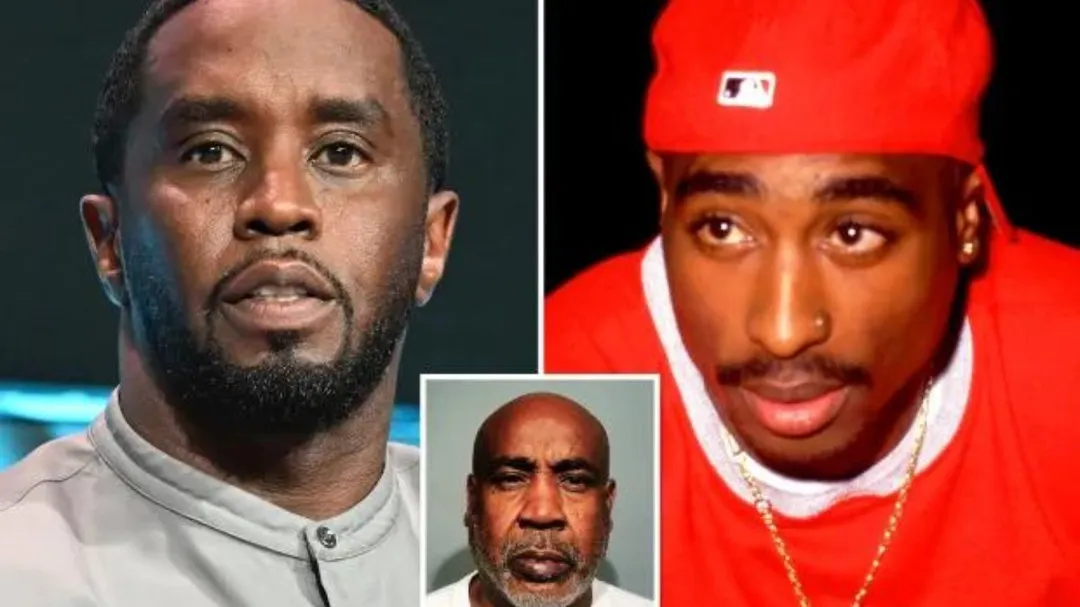The hip-hop world has long been plagued by rumors, conspiracy theories, and tragic events. Among the most infamous stories is the unsolved murder of two of the genre’s greatest icons: Tupac Shakur and Christopher Wallace, better known as The Notorious B.I.G. (Biggie Smalls). Recently, shocking allegations have surfaced, suggesting that Sean “Diddy” Combs, the mogul behind BAD BOY Records, was not only involved but also orchestrated these events. The claims allege that Diddy paid $1 million to have Tupac killed and later had Biggie Smalls murdered when he attempted to leave BAD BOY Records. But how credible are these allegations, and what impact could they have on Diddy’s legacy and the hip-hop community?

The Allegations: A $1 Million Bounty on Tupac
The rivalry between East Coast and West Coast rappers during the 1990s culminated in the tragic deaths of Tupac and Biggie, two of the most influential figures in hip-hop history. While many theories have been proposed over the years, one of the most persistent involves Diddy’s alleged role in these murders.
According to some sources, Diddy allegedly offered $1 million to have Tupac killed. The motivation behind this alleged bounty was reportedly fueled by the escalating tensions between Tupac and the BAD BOY Records camp, particularly after Tupac was shot in 1994 at Quad Recording Studios in New York City—a shooting that Tupac believed Diddy and Biggie were involved in.
This accusation, though unproven, has lingered in the shadows of the music industry for decades. Those who believe in the theory argue that Diddy had much to gain from Tupac’s death, particularly in solidifying his dominance in the East Coast rap scene.
Biggie Smalls: A Target for Wanting to Leave BAD BOY Records?
While the theory surrounding Tupac’s death is already shocking, even more startling is the claim that Diddy had Biggie Smalls killed to prevent him from leaving BAD BOY Records. Biggie was not only a close associate of Diddy but also the label’s most successful artist at the time. His departure would have been a significant blow to the label, both financially and reputationally.
According to these allegations, Biggie had grown increasingly dissatisfied with his position at BAD BOY Records and was considering a move to another label. Diddy, unwilling to let his star artist go, allegedly orchestrated Biggie’s murder to protect his empire.
This theory is equally controversial, as it paints a picture of Diddy not just as a ruthless businessman but as someone willing to resort to murder to maintain control over his artists and his label’s dominance.
The Impact of These Allegations on Diddy’s Legacy
For years, Diddy has been celebrated as a pioneer in the music industry, a visionary who transformed BAD BOY Records into one of the most successful labels of the 1990s. However, these allegations, if proven true, would drastically alter the narrative surrounding his legacy.
Diddy’s influence in the hip-hop world is undeniable. He played a pivotal role in shaping the careers of numerous artists and was instrumental in popularizing the genre on a global scale. But the suggestion that he may have been involved in the deaths of Tupac and Biggie casts a dark shadow over his accomplishments.
For fans and historians of hip-hop, these allegations force a reevaluation of one of the genre’s most iconic figures. It raises uncomfortable questions about the lengths to which some individuals may go to achieve and maintain success in an industry often marked by fierce rivalries and dangerous power struggles.
The Role of Conspiracy Theories in Hip-Hop Culture
Conspiracy theories have always been a part of hip-hop culture, often fueled by the genre’s close ties to street life, its confrontational nature, and the tragic fates of some of its biggest stars. The deaths of Tupac and Biggie remain unsolved, and the mystery surrounding their murders has only added to the proliferation of these theories.
While some dismiss these theories as mere speculation, others argue that they are rooted in the real-life tensions and conflicts that defined the 1990s rap scene. The idea that powerful figures like Diddy could be involved in such heinous acts reflects the deep mistrust that exists within the community towards those who hold power and influence.
However, it’s important to approach these allegations with caution. While they make for sensational headlines, they remain unproven, and Diddy has never been charged with any crimes related to the deaths of Tupac or Biggie.
Conclusion: A Complex Legacy
The allegations that Diddy paid $1 million to have Tupac killed and orchestrated Biggie Smalls’ murder to keep him from leaving BAD BOY Records are both shocking and disturbing. Whether there is any truth to these claims remains to be seen, but they undoubtedly add another layer of complexity to Diddy’s legacy.
As the hip-hop community continues to grapple with the loss of two of its greatest icons, the questions surrounding their deaths—and the possible involvement of industry insiders—will likely persist. For Diddy, the impact of these allegations could be profound, potentially overshadowing the many contributions he has made to music and culture.
In the end, the truth may never be fully uncovered, but the speculation and intrigue surrounding these events will continue to captivate and divide fans for years to come.